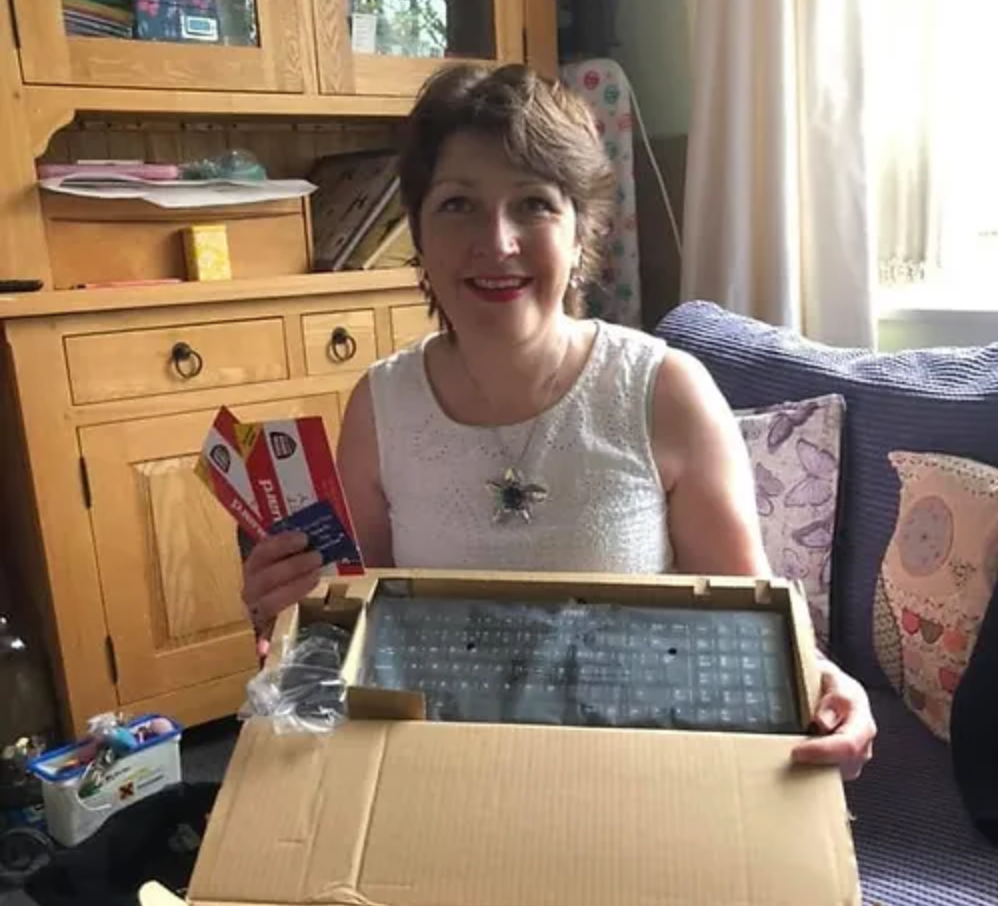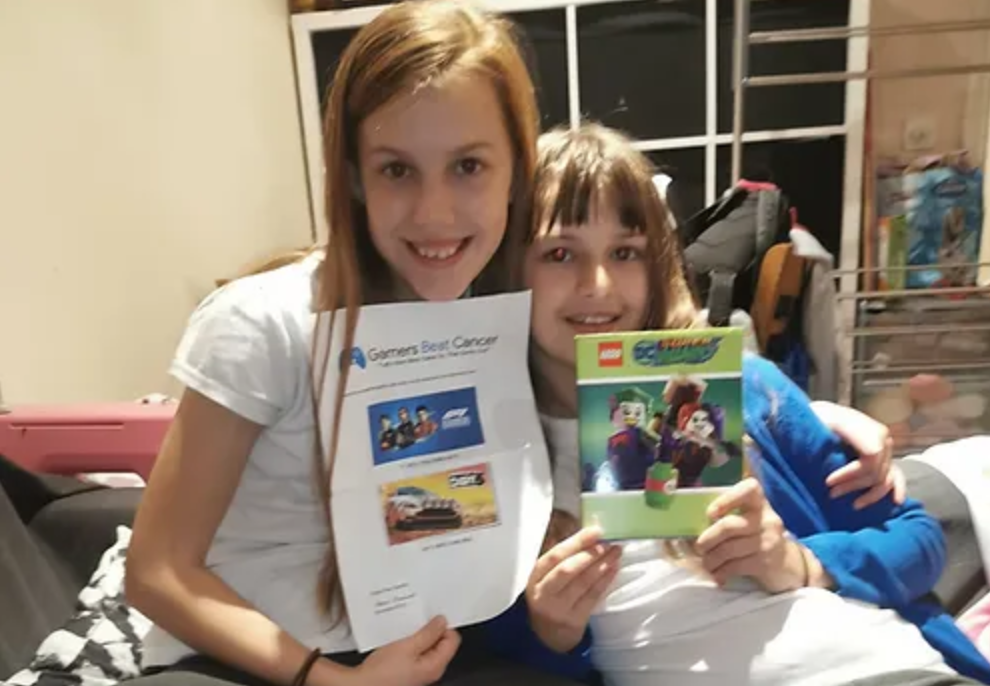We’re eating up the miles in our month-long challenge, and we’re on track to hit our target. So now our attention turns to raising as much money as we can for our chosen charities, one of which is Gamers Beat Cancer (GBC). They provide gaming equipment for people living with cancer, giving them the chance to connect with other gamers or simply spend their own time doing something they love.
Now, it’s often the way that when you raise money for brilliant charities like this, you’re raising money for the name and the general cause. You sometimes forget about the actual people behind the scenes at that charity that keep things going; what they do, and the real people they help.
So we spent a little time with David Wright, one of the small team that manages the day-to-day at GBC, to get more of an understanding of how it’s run and firstly, how it came about. “It was about four or five years ago, through a man called Steven Bracewell [GBC founder], who was diagnosed with a form of leukaemia, and was at hospital receiving treatment,” David says. “He was bored, stuck on a ward, so his wife bought him a Nintendo Switch. So he got to play his games, but also got to connect with friends at the same time.”
It was when Steven came out of hospital that he had an epiphany that there were more people just like him in hospitals all over the country, and he could help them. And so Gamers Beat Cancer was born, created with the aim of “giving the gift of gaming” to people living with cancer. GBC goes further than gaming, too; they provide all sorts of tech to people who need it. On top of consoles and video games, they also supply PCs, laptops and home automation solutions.
David gives the example of a 21 year old woman called Casey, who had multiple forms of cancer, had lost both legs, and couldn’t get around her house. On the gaming side, GBC gave her a laptop and a copy of Sims 4 which she enjoyed playing. But beyond that, they provided her with some TP link networking solutions and home automation, to enable her to more easily control things like light switches.
But for all of the other support GBC provides, the joy of gaming is at its heart. As David says,
“The main reason for Steve to set this up was just escapism and to forget that you had cancer, just lose yourself for an hour or two.”
He continues: “Some of the games people play are multiplayer and some they play on their own; games for people that just want to – it probably sounds a bit horrible – but forget that they’ve got cancer.”
 David wasn’t always involved in GBC; he came on board around two years ago having met Steven on LinkedIn. David’s cousin was the youngest survivor in the Alder Hey hospital in Liverpool having had leukaemia at six months old. That pulled on his heartstrings so much that he was moved to get involved in GBC to help in any way he could, drawing on his experience in IT.
David wasn’t always involved in GBC; he came on board around two years ago having met Steven on LinkedIn. David’s cousin was the youngest survivor in the Alder Hey hospital in Liverpool having had leukaemia at six months old. That pulled on his heartstrings so much that he was moved to get involved in GBC to help in any way he could, drawing on his experience in IT.
Last June, Steven’s leukaemia returned, and he sadly died. David and Steven had previously agreed that David would run GBC with Steven’s wife Deborah going forward. Today, David deals with the tech partners, gaming partners, people who can help with fundraising, and works on events, while Deborah takes care of vetting and shipping. A third person, Andrew, works with the charities. All three work voluntarily.
Speaking of the charities, GBC gets enquiries from several organisations, including some household names like Shine Cancer Support, Teenage Lives vs Cancer and MacMillan Cancer Support. As David says, “multiple other kinds of charities will come to us because they don’t have this tech arm of their charity, and they’ll give us lists of people that need help.”
You’re probably thinking the same thing reading this as we felt talking to David about GBC; just how impressive this charity is, especially with just three people running it. But there are challenges, and you may not be surprised to hear that it comes down to donations. “We’ve always had good support from businesses offering tech and donations,” David says, “but that’s going to be our biggest sticking point this year. We’ve already had four companies tell us that they’re unable to donate either tech or funds this year.”
But the support is still very much there, from gamers doing 24-hour streams to people getting involved in cosplay days (“there seems to be a lot of Marios knocking around on that day”) and things like fun days and sponsored walks. These events raise anywhere from a couple of hundred to a couple of thousand pounds. “We are forever grateful,” David says. “It makes a huge difference.”
 GBC has helped so many people up to now, so where does it see itself in the future? Well, as David says, they did have some rather ambitious goals to take into this year. They wanted to build a gaming bus they could take out on the road, which would have cost £50,000. And they were looking to work with Alder Hey and a few hospices in the UK, doing a gaming room where people can just drop in and spend some time. Again, that could have cost £30,000. Those plans aren’t shelved but are on ice for now. “We’ve decided to take not a step back, but stay where we are for a year to then go forward. So we are just focusing 2024 purely on getting as much money to fund the gift of gaming and getting as much tech as we can.
GBC has helped so many people up to now, so where does it see itself in the future? Well, as David says, they did have some rather ambitious goals to take into this year. They wanted to build a gaming bus they could take out on the road, which would have cost £50,000. And they were looking to work with Alder Hey and a few hospices in the UK, doing a gaming room where people can just drop in and spend some time. Again, that could have cost £30,000. Those plans aren’t shelved but are on ice for now. “We’ve decided to take not a step back, but stay where we are for a year to then go forward. So we are just focusing 2024 purely on getting as much money to fund the gift of gaming and getting as much tech as we can.
"We probably send about anywhere between 500 and 800 individual pieces of tech out to people in a year, so we want to get that to 1,000.”
If you’ve got any tech you can give to help them to those magical four figures, contact them through their website, or make a donation. Anything you can give would be appreciated so much.
And please support our UK to India walk/run/cycle, raising funds for three charities including Gamers Beat Cancer. Details here.
Speaking to David and learning more about this incredible charity only made us want to raise even more for them. Please help us do that. Thank you.

David Trumper has been the Senior Copywriter at OLS since 2020, working across a range of client accounts, and hundreds of brands. He loves spotting great writing and creativity in the wild, and is a big fan of a strong, confident tone of voice. Outside work, he enjoys walking (pub lunch stop optional) and live music, and is the stadium announcer at Portsmouth Football Club.